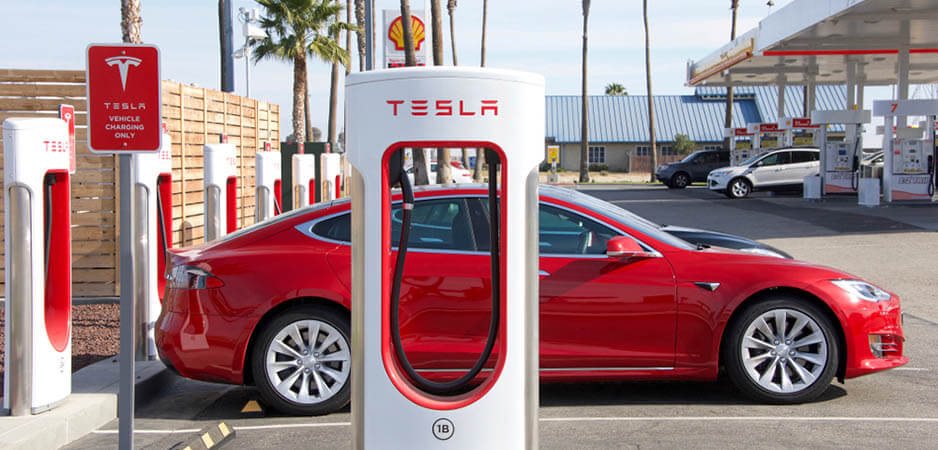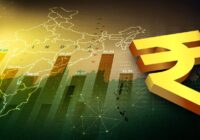Tesla’s Elon Musk has agreed to step down as chairman. The Daily Devil’s Dictionary gives its take.
Elon Musk’s repeated hyperreal behavior has left Tesla reeling. It produced an extremely rare situation, where the real and hyperreal found themselves in direct confrontation. Ordinarily, hyperreality, when it is well managed, drifts so far outside reality that no comparison is possible. But managing hyperreality has never been a one-man job.
As one of the leading proponents of hyperreality, Musk apparently has demonstrated that for all his genius in creating hyperreality, he has even more difficulty managing it than he has had managing Tesla. The latest news is that Musk has agreed to step down from his position of chairman, the perch from which he created his version of hyperreality. He will remain CEO, but two new directors will “help” him to run the business.
The drama began when the US Securities and Exchange Commission (SEC) filed suit against Musk, who initially proclaimed not just his innocence, but his “integrity.” Quoting Bernstein analyst Toni Sacconaghi, CNBC made it clear what was at stake: “[T]he mere possibility that Musk could be removed as CEO (or entirely from Telsa) is likely to cast an overhang on the stock, and make it extremely difficult for the company to raise capital (either private or public).”
Here is today’s 3D definition:
Overhang:
In the world of finance, overhang can lead to hangover. It describes a threat that that hangs over the share price. It may, in some cases, be due to a CEO’s repeated hangovers, but in all cases promises to leave current investors with a more severe one.
Contextual note
Money Week provides us with a more technical definition: “Stock overhang is a phrase used to describe a sizeable block of shares (or, for that matter, of securities, commodities, contracts, and so on) which, if it were to be released in the market in one go, would flood it, and so put downward pressure on prices.”
Tech Crunch relates the terms of the agreement, including this one: “Tesla has also agreed to appoint two new independent directors to its board and establish a new committee of independent directors and put in place additional controls and procedures to oversee Musk’s communications.” As they explain, this essentially means that his itch for tweeting will, at the very least, be monitored and possibly squelched.
Could this mark a moment in history where, to prevent hyperreal leaders from destroying what they control, the constitutionally protected “right to tweet” will be rescinded? Does this set the stage for a similar approach to a parallel problem on Pennsylvania Avenue? Wasn’t that the point of the infamous anonymous op-ed in The New York Times drawing attention to the “adults in the room” who attempted to reassure the nation that, despite Donald Trump’s continued access to Twitter, the worst was being prevented by a “quiet resistance” in the White House?
In a slightly ironic twist that Musk may or may not appreciate, we are reminded that it was an ex-Tesla employee, Sisun Lee, who invented an apparently effective cure for hangovers.
Historical note
From Bloomberg we learn that “the three-year time limit on Musk’s exclusion and the reality that, for many fans, he personifies the company may also deter true heavy hitters from taking on what could end up amounting to a lame-duck job.” The article continues, mentioning “relief on the part of Musk’s fans that he remains in the driving seat.” We know that we are in the world of hyperreality when the fate of a company is measured by the reactions of “fans” of the CEO. Did Ford depend on Henry Ford’s fans? And Apple didn’t depend on Steve Jobs, who had more fans than Musk.
Does this humiliation of Musk mean that reality may be gaining grounds on hyperreality and reversing the long-term trend — promoted by a diversity of political, financial and corporate interests — to replace our understanding of the world as a complex system by the fictional, but superficially attractive simplified representations put forward by the heroes of hyperreality?
The problem of hyperreal governance is not limited to the fantasies of narcissistic individuals such as Musk and Trump. As economist and political commentator Umair Haque reminds us, an entire nation can believe that it has attained a state of hyperreality, above and outside the world. He cites the example of the US and the International Criminal Court, founded in 1998, but which the US refused to join (and refuses more adamantly today). Haque says: “And so it was a global public good of a novel kind — global public law to prevent war crimes, genocide, and crimes against humanity. What a beautiful idea — unless, perhaps you’re American, and believe that you are above the world, not a part of it.”
Haque takes comfort from the fact that the nations of the world, brought together on the floor of the UN General Assembly, allowed themselves collectively to laugh at the clown on the stage. But the sad fact is that the central feature of all hyperreality is the denial of reality because of its ambition to replace it with a bundle of half-baked ideas, slogans, caricatures and window-dressing. The struggle isn’t between capitalism and socialism, which are simply the names of alternatively an irrational or rational economy. It’s the struggle between hyperreality and reality. And in purely financial terms, it’s a very uneven fight.
*[In the age of Oscar Wilde and Mark Twain, another American wit, the journalist Ambrose Bierce, produced a series of satirical definitions of commonly used terms, throwing light on their hidden meanings in real discourse. Bierce eventually collected and published them as a book, The Devil’s Dictionary, in 1911. We have shamelessly appropriated his title in the interest of continuing his wholesome pedagogical effort to enlighten generations of readers of the news.]
The views expressed in this article are the author’s own and do not necessarily reflect Fair Observer’s editorial policy.
Support Fair Observer
We rely on your support for our independence, diversity and quality.
For more than 10 years, Fair Observer has been free, fair and independent. No billionaire owns us, no advertisers control us. We are a reader-supported nonprofit. Unlike many other publications, we keep our content free for readers regardless of where they live or whether they can afford to pay. We have no paywalls and no ads.
In the post-truth era of fake news, echo chambers and filter bubbles, we publish a plurality of perspectives from around the world. Anyone can publish with us, but everyone goes through a rigorous editorial process. So, you get fact-checked, well-reasoned content instead of noise.
We publish 2,500+ voices from 90+ countries. We also conduct education and training programs
on subjects ranging from digital media and journalism to writing and critical thinking. This
doesn’t come cheap. Servers, editors, trainers and web developers cost
money.
Please consider supporting us on a regular basis as a recurring donor or a
sustaining member.
Will you support FO’s journalism?
We rely on your support for our independence, diversity and quality.






